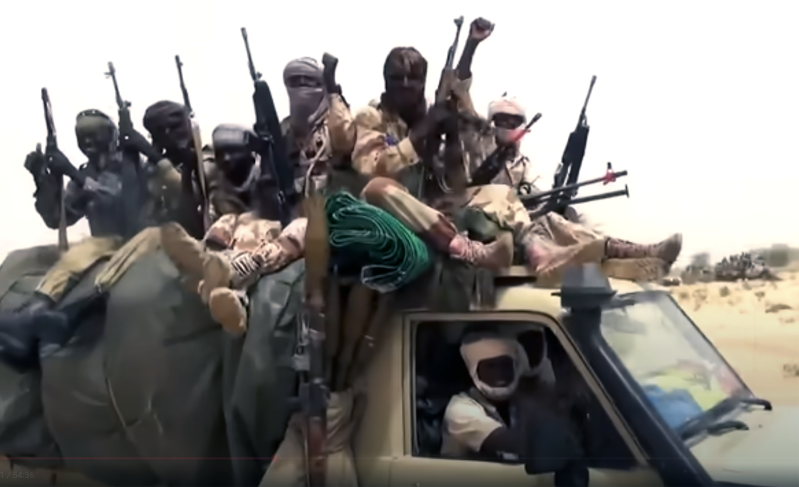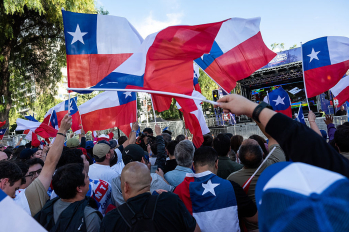
As prayer is focused on the persecuted church this Sunday (Nov. 2) for International Day of Prayer for the Persecuted Church (IDOP), Christians in Nigeria are being killed daily while pushback grows against assertions that they are suffering genocide.
The pushback by Nigerian government officials, lobbyists and policy crafters comes as efforts mount to call the government to account. U.S. Sen. Ted Cruz has introduced the Nigeria Religious Freedom Accountability Act, which calls for U.S. action against a Nigerian legal framework that enables religious persecution. Rep. Marlin Stutzman of Indiana has proposed a House companion bill toward the same ends.
Nina Shea of the Hudson Institute’s Center for Religious Freedom and 34 other human rights and government leaders on Oct. 15 sent a petition to President Trump condemning the Nigerian government’s treatment of religious minorities and urging the administration to redesignate Nigeria as a “Country of Particular Concern,” as it had during his first term.
On Friday (Oct. 31) Trump asserted on Truth Social that he was “hereby making Nigeria” a CPC. The post was understood to be a vow that the U.S. State Department will include Nigeria when it makes its CPC designations later this year.
The petition to Trump stated, “The Nigerian government is directly violating religious freedom by enforcing Islamic blasphemy laws that carry the death penalty and harsh prison sentences against citizens of various religions. It also demonstrably tolerates relentless aggression uniquely against Christian farming families by militant Fulani Muslim herders, who appear intent on forcibly Islamizing the Middle Belt.”
The petition succinctly frames the information skirmishes about Islamic extremist violence in Nigeria that has killed 52,000 Christians and attacked more than 20,000 church buildings since 2009, according to figures from the Nigerian civic group Inter Society on Civil Rights and Rule of Law. While acknowledging that Boko Haram and other Islamic State and al Qaeda-linked terror groups seeking religious and political domination in the country have attacked Muslims and Christians alike, the petition states that Fulani Muslim herders present the greatest danger to Christians.
“The biggest threat facing Nigeria’s Christians comes from Fulani Muslim herders. With cries of ‘Allahu Akbar’ and wielding AK-47s, they invade peaceful Christian farming areas in Nigeria’s central region, massacring families, burning homes and harvests, and driving millions of Christians from their ancestral lands,” states the petition, whose signatories include retired Congressman Frank Wolf and, signing in a personal capacity, U.S. Commission on International Religious Freedom member Maureen Ferguson. “Many local churches and civic observers see this pattern of Fulani attacks as a coordinated effort to seize land and forcibly Islamize the area.”
In stark contrast to the government’s fight against northern Islamic extremist terrorist groups, officials allow militant Fulani herders to attack defenseless Middle Belt Christians with “complete impunity,” the petition states.
“It fails to investigate the Fulanis’ organizational structures and identify who is arming them,” the petition notes. “The authorities don’t enforce the country’s gun bans against the Fulani. They don’t act to reclaim the stolen farms for their Christian owners, who are instead consigned to destitution in internally displaced camps that receive little, if any, government assistance. They rarely arrest and never convict Fulanis who attack Christians. Even when warned of impending Fulani attacks, government security forces are typically unresponsive or ineffective.”
Following the 2021 revocation of the first Trump administration’s designation of Nigeria as a CPC, the U.S. State Department’s religious freedom report of 2023 gives a neo-Marxist theory about the Fulani attacks: that climate change is causing “clashes” between two rural socioeconomic groups over scarce natural resources, according to the petition.
“The U.N. and most media follow suit,” it adds.
To the dismay of Nigerian Christians terrorized by the nightly possibility of being butchered by Islamic extremists, also following suit in this narrative is U.S. Ambassador to Nigeria Richard Mills, a Biden-appointee who told journalists in Abuja on Oct. 17 that Nigeria’s Middle Belt has witnessed deadly clashes between farmers and herders, though he admitted many of the farmers were Christians.
“But definitely it’s not something that we can say is specifically targeted about a specific group,” he said, apparently following Nigerian President Bola Ahmed Tinubu’s script in his effort to tamp down religious tensions in the country. “This has never been a serious religious issue and should not be.”
Nigeria is the United States’ second largest trade partner in Africa, another likely factor influencing public comments by Nigerian and U.S. diplomats – at the expense of the thousands of Christians whom the Shea petition noted have been murdered and raped so far this year, along with the more than 100 pastors and Catholic priests taken hostage for ransom.
In Catholic Bishop Wilfred Anagbe’s March 12 testimony on Fulani persecution of Christians in his Benue state diocese of Makurdi at hearings before the U.S. House Subcommittee on Africa, he noted that, “The experience of Christians in Nigeria can be summed up as a church under Islamist extermination.”
Soon after, the petition notes, Fulani militants attacked Anagbe’s home village and massacred 12 of his relatives. They were dead before he arrived home.
“We are concerned that your administration may be considering listing Nigeria on the IRF [International Religious Freedom] Act’s ‘Special Watch List’ instead of designating it as a CPC,” the petition states. “If so, this may stem from a misconception that CPC designation would require the United States to isolate or sanction Nigeria. In fact, the IRF Act does not mandate automatic sanctions and, moreover, provides for a sanctions waiver and cites a range of other possible policy responses.”
Among the comments that Mills made, echoing Nigerian officials, was that Islamic extremist groups have killed more Muslims than Christians – an assertion directly contradicted by a report last year by the Observatory of Religious Freedom in Africa (ORFA). Documenting that Fulani herdsmen kill more civilians than Boko Haram or Islamic State West Africa Province (ISWAP), ORFA reported that data from October 2019 to September 2023 show that most victims were Christians.
Of the 30,880 civilians killed in the four-year reporting period, 16,769 were Christians, while the number of Muslims killed was 6,235, ORFA reported. Of 21,532 civilians abducted, 11,185 were Christians, while the number of Muslims abducted was 7,899.
Members of African Traditional Religions (ATRs) killed numbered 154, and 184 were kidnapped, while the religions of 7,722 civilians killed and 2,264 abducted were unknown, according to ORFA.
Taking into account the relative sizes of the Christian and Muslim populations within the states researched, the ratio of Christians to Muslims killed was 6.5 to 1, and the ratio of Christians to Muslims abducted at 5.1 to 1, according to the report.
“The ratio of Christians to Muslims killed rises significantly when the religious composition of the states is taken into consideration” in comparison with the overall numbers, which show a ratio of Christians to Muslims killed at 2.7 to 1, and the ratio of Christians to Muslims abducted at 1.4 to 1.
The report added that 55 percent of the Christians slain were killed by Armed Fulani Herdsmen (9,153) and 29 percent by Other Terrorist Groups (4,895). Boko Haram and ISWAP combined accounted for just 8 percent of the Christians killed (1,268).
For Muslims, the perpetrators were the reverse: 24 percent of the Muslims slain were killed by Armed Fulani Herdsmen (1,473), and 53 percent by Other Terrorist Groups (3,334). Boko Haram and ISWAP combined accounted for just 12 percent of the Muslims killed (770).
As the World Evangelical Alliance-sponsored IDOP focuses on prayer for persecuted Christians on Sunday (Nov. 2) and Nov. 9, writer Greg Maresca comments in the Canada Free Press that Nigeria’s Christians are enduring one of the worst persecutions in modern times, though the international community remains largely silent.
“This crisis transcends geopolitics and foreign policy and is in desperate need of a moral imperative,” Maresca states. “As St. Paul affirms in 1 Cor. 12:26, ‘If one member suffers, all suffer together.’ As members of the Body of Christ, Christians are called to bear witness, speak out, and act to end the atrocities unfolding across Africa. Without intervention, the Christian population in many regions faces displacement within a generation.”





